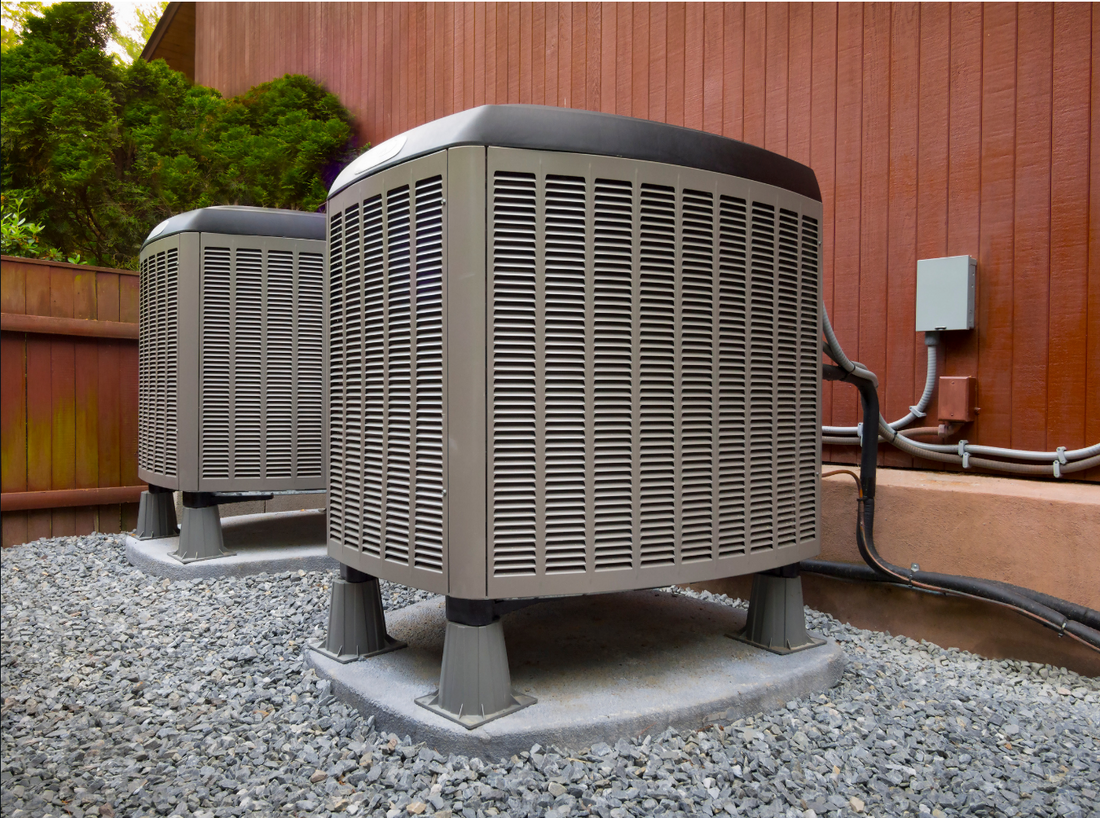What Is a Heat Pump System?
A heat pump system is an energy-efficient heating and cooling solution that transfers heat from one place to another rather than generating it. In colder months, it extracts heat from the outdoor air, ground, or water source and moves it indoors. In the summer, the process reverses, removing heat from inside the home and releasing it outdoors.
Since heat pumps transfer heat instead of burning fuel to create warmth, they can significantly reduce energy consumption. According to the U.S. Department of Energy, modern heat pumps can cut electricity use for heating by approximately 50% compared to furnaces and baseboard heaters.
What Are the Different Types of Heat Pump Systems?
There are three primary types of heat pumps:
1. Air-to-Air Heat Pumps
The most common type, air-to-air heat pumps (also known as air-source heat pumps), pull heat from the outdoor air to warm your home in winter and remove heat in summer for cooling.
✅ Energy Efficiency: Can reduce electricity consumption by up to 50% compared to traditional heating systems.
✅ Cold Climate Performance: Older models struggled in extreme cold, but modern advancements allow some units to perform efficiently in temperatures as low as -13°F.
✅ Installation & Maintenance: Easier and more affordable to install than geothermal or water-source systems.
2. Geothermal Heat Pumps
Geothermal heat pumps (also called ground-source heat pumps) use underground pipes to transfer heat between your home and the earth. Since the temperature below the surface remains relatively stable year-round, these systems are highly efficient.
✅ Energy Efficiency: Can lower energy use by 30–60%, making them one of the most cost-effective long-term options.
✅ Durability: Lifespan of 20+ years for indoor components and 50+ years for underground loops.
✅ Installation & Cost: Higher upfront costs but long-term energy savings. Best for homeowners planning to stay in their property for many years.
3. Water-Source Heat Pumps
Water-source heat pumps work similarly to geothermal systems but use a nearby body of water (lake, river, or pond) as the heat exchange medium.
✅ Efficiency: As reliable as geothermal systems, with low operating costs.
✅ Climate Suitability: Works well in areas with accessible water sources but not practical for all locations.
What Is a Split System Heat Pump?
A split system heat pump consists of two separate units: an outdoor compressor/condenser and an indoor air handler. These systems are commonly used in ducted setups and offer flexibility for heating and cooling multiple rooms.
💡 Ductless mini-split heat pumps are another variation, designed for homes without ductwork. They provide zoned temperature control, improving efficiency and comfort.
How Much Does It Cost to Install a Heat Pump System?
The cost of installing a heat pump system varies based on the type, size, and complexity of the installation.
-
Air-source heat pumps: $4,000–$8,000 (including installation).
-
Geothermal heat pumps: $10,000–$30,000 (higher upfront cost but long-term savings).
-
Ductless mini-split heat pumps: $3,000–$10,000 per unit (ideal for zoning control).
Factors like home size, climate, and the need for additional ductwork can affect the final cost.
Who Makes the Best Heat Pump System?
Several leading HVAC brands manufacture high-quality heat pump systems. Here are some of the top-rated brands based on reliability, efficiency, and performance:
✅ Carrier – Industry leader known for advanced technology and energy efficiency.
✅ Trane – High-performance heat pumps with durability and smart home integration.
✅ Daikin – Innovative designs with strong warranties and quiet operation.
✅ Mitsubishi Electric – Best for ductless mini-split systems.
✅ Lennox – Offers some of the highest-efficiency heat pumps on the market.
Final Thoughts: Is a Heat Pump Right for You?
If you're looking for an energy-efficient way to heat and cool your home, a heat pump system is a great option. Whether you choose an air-source, geothermal, or split system, you'll enjoy lower energy costs and a smaller environmental footprint.
At Voomi Supply, we offer a wide selection of heat pumps from top brands. Browse our collection to find the right system for your home or business.


